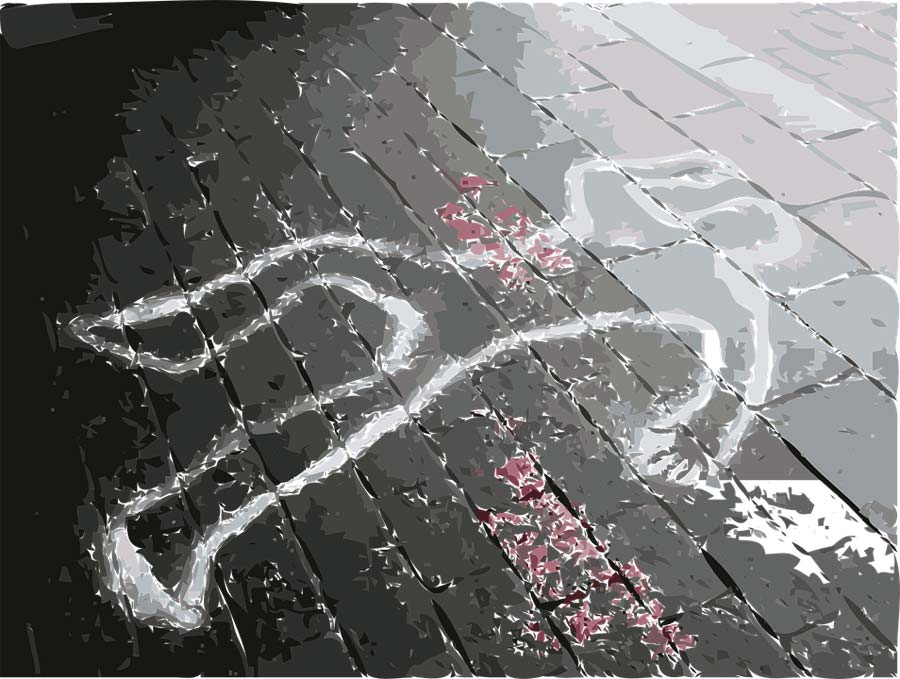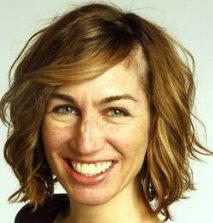
When a gunman killed four people and wounded a fifth at a Southern California office building last week, news outlets, over and over, called it the third in a string of mass shootings.
"The violence in the city of Orange was the third major mass shooting in just over two weeks," an Associated Press story published on chicagotribune.com read. "Last week a gunman opened fire at a supermarket in Boulder, Colorado, and killed 10. A week before that, six Asian women were among eight people killed at three Atlanta-area spas."
No mention of Chicago.
In Sunday's New York Times, Nicholas Kristof wrote a column headlined, "How do we stop the parade of gun deaths?" Chicago gun deaths were nowhere to be found.
But 15 people were shot at a party in Chicago's Park Manor neighborhood on March 14 (two days before the Atlanta-area shootings) and eight people were shot outside a Wrightwood neighborhood storefront on March 26 (four days after the Boulder shooting and five days before the Orange shooting.)
What does it say that the violence here is so rarely included in larger discussions — in the media, among politicians — about mass shootings and the trauma they inflict on our nation?
"Mass shootings are mass shootings when they involve white people," Shaka Rawls, principal of Leo Catholic High School in Chicago's Auburn Gresham neighborhood, told me. "When they're Black people, it's just something that happened over there. When it's violence perpetrated by and on Black people, the mainstream media can easily turn its back and say, ‘This is what happens in those communities.' But the impact is huge on those communities."
I called Rawls because the school he leads is located down the street from the funeral home where 15 people were shot on a Tuesday evening in July. Rawls raced to the scene as soon as he heard the news.
"I will never unsee that," he said. "I'm traumatized by that, and this isn't my first rodeo. People are laid out on the ground. People are crying. There's no ambulance on the scene yet. I'm a school principal. I'm not trained for this."
But in the days and weeks that followed, he found himself having to advocate for his students and staff to receive counseling and support, when he expected to be fielding offers of help.
"So many things that happen in my community are not looked at as violence perpetrated on human beings," he said. "Sometimes we have to remind people that these are humans. The people experiencing this trauma are humans."
On a day-to-day basis, Chicago's gun violence doesn't go unnoticed or unremarked upon. City residents and leaders face near-constant criticism and ridicule for our devastatingly high number of shootings and deaths.
But I hear those shootings and deaths lobbed as a jeer far more often than I hear them urgently, thoughtfully discussed as a crisis deserving of all-hands-on-deck solutions. And the failure to include Chicago in the national discourse about mass shootings feels like a symptom of this larger problem: an "othering" of our violence — as if it isn't as tragic, isn't as much of an assault on humanity, isn't as deserving of widespread calls for answers and reform.
"It's because we're killing each other, so it's nothing out of the ordinary," said Danielle Stipe-Patterson, 32, who lives in Park Manor. "When it should be out of the ordinary. This is traumatic. This is trauma. I can't even watch certain TV shows because I'm living it. Why watch it for entertainment when I literally hear the gunshots every other night?"
Stipe-Patterson's dad was shot to death in Roseland when she was 8 years old. He was outside washing his car when he was killed.
"He wasn't affiliated with any gangs," Stipe-Patterson said. "He was just a boy from Louisiana who had seven kids and two jobs."
For several years, Stipe-Patterson worked as a program associate for the Illinois Council Against Handgun Violence, conducting workshops and speaking to students in and around Chicago about gun violence and the importance of mental health resources for both prevention and healing.
"At the beginning, I felt like I made a difference," she said. "I was able to share my story with kids who lost a parent or an uncle or a brother, showing them that you can still make it. After a while, sharing the story over and over and over and coming home and living the problem in the community, it was taxing."
Now she works for a nonprofit that offers arts programming to kids who can't attend school because of chronic illness.
She started to feel like legislators and other people in positions of power were less interested in addressing the root causes — racial segregation, long-term disinvestment on the South and West sides, lack of mental health resources, underfunded schools, repeated exposure to trauma — and more interested in simply chalking up Chicago's violence to gangs.
After a recent shooting on her block, Stipe-Patterson said she and other neighbors tried to get information from police about what happened, how they might help solve the crime, and what to be on the lookout for.
"They wouldn't tell me anything," she said. "You have to solve these things in the community, but how are we supposed to be a community if y'all aren't allowing us to be a community? How are we supposed to change stuff if y'all aren't being transparent with us?"
Every shooting — whether it takes place on a city sidewalk or inside a church or at a suburban high school — is a product of what the shooter experienced in life, Rawls said.
"Poverty, a desperate outlook on life, poor parenting, bullying at school," he said. "How did they get the weapon? What's the economic impact on that community? What's the social and emotional impact on that community? There is not a catchall solution, but those should be the questions in every case. Every case."
Firearms are the leading cause of death for children and teens in Illinois, said Kathleen Sances, president and CEO of G-PAC Illinois, a gun violence prevention political action committee.
"An average of 183 children and teens die by guns every year in Illinois," Sances said. "The gun violence crisis disproportionately affects Black and brown children and teens, who are 13 times more likely to die from gun violence than their white counterparts.
"Black and brown children are dying and nobody's doing anything about it," she continued. "People who don't live in impacted communities don't see the violence. They dissociate themselves from those people. And I think the media reinforces this perspective."
I agree. Yet, as a member of the media, I am engaged in an endless internal dialogue about how and how much to write about the violence in my beloved city. Too little is an insult to the human lives shattered by it and a dodging of the responsibility to shine light on our most pressing problems. Too much risks reinforcing negative stereotypes about a city that is so much more than the violence that has forever plagued it.
Rawls said he feels similarly conflicted over whether he wants more attention paid to Chicago's mass shootings, whether he would want to see Chicago listed alongside Atlanta and Boulder and Orange in an AP story.
If the attention would result in more federal resources directed at the problem? If the attention were accompanied by an interest in solving the root causes of gun violence, an understanding of Chicago's porous borders through which weapons flow, an acknowledgment of the levels of trauma and fear that many of his students carry on their shoulders? Sure.
"But the conversations don't have that tone," he said. "There's a, ‘That's what they get. They shouldn't have been there' tone. I've seen it."
More media attention? More politicians invoking Chicago in their gun reform speeches?
"It could be like throwing water on a grease fire," Rawls said.
I believe we can do better. I believe we — we in the media, we in Chicago, we Americans — can refuse to settle into a place where we accept gun violence as simply the cost of living in this city, where we experience the gun violence here as somehow less remarkable and less remarked upon than gun violence elsewhere. Bullets shattering a funeral on 79th Street are every bit as repellent to human nature as bullets shattering the aisles of a grocery store in Boulder, Colorado.
"I think the best thing to remember is that the things that divide us are socially constructed," Rawls said. "The things that separate us are created by society. And if we created them, we can dismantle them. I would like for everyone to see each other as humans, to see this is a problem happening to humans, not just those people over there."
(COMMENT, BELOW)
Previously:
• 03/02/21: Andrew Cuomo sexual harassment allegations got a whole lot ickier when he threw the word 'mentor' in the mix
• 02/25/16: Keeping the peace in a Hillary vs. Bernie marriage
• 11/17/14: Kardashian's flaunting her chassis exposes her value system — and nobody else's
Heidi Stevens
Chicago Tribune
(TNS)
Heidi Stevens writes for the Chicago Tribune.


 Contact The Editor
Contact The Editor
 Articles By This Author
Articles By This Author